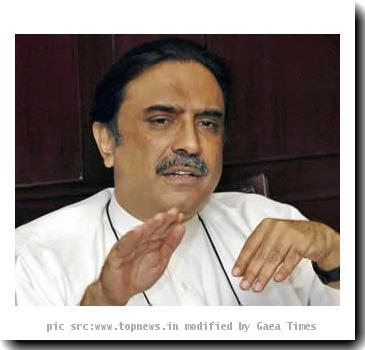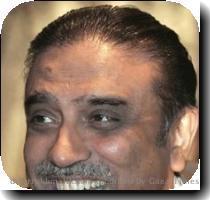Pakistan’s president says he’s willing to give Afghans more intelligence to fight terrorists
By APWednesday, September 15, 2010
Pakistani leader offers more intel to Afghans
ISLAMABAD — Pakistan’s intelligence services are willing to work more closely with Afghanistan to fight Taliban militants, the president said Wednesday after talks with the Afghan leader focussed on allegations Islamabad is harboring Afghan insurgents.
Afghan President Hamid Karzai made a veiled reference to the existence of terrorist hideouts on the Pakistani side of their shared border. He said he and President Asif Ali Zardari had discussed ways to tackle the sanctuaries and training grounds, but did not say whether anything had been agreed.
“The reality is that they (the militants) must have a base somewhere,” he said. “Those who are attacking us in Afghanistan and those who are attacking you in Pakistan don’t come from, say, the Ivory Coast or Burkina Faso or Brazil or any other place you can imagine,” he said.
In recent weeks, Karzai and other Afghan government officials have made increasingly strong statements against Pakistan’s alleged support of militants, echoing long-held complaints by American officials. Complicating the issue, Karzai is also believed to be trying to talk with some Taliban factions as a way to end the nine-year conflict, and Pakistan’s help in mediating those talks could be crucial.
Zardari said at a news conference that the two nations’ cooperation had improved since he took office and “we intend to enhance it further.” Karzai and Zardari several times called each other “brothers” and referred to Islamabad as Karzai’s “second home.”
Washington has been encouraging closer ties between the governments as a way of reducing tension in the region.
“We need more security cooperation between our intelligence and their intelligence, which Pakistan is willing to offer,” said Zardari.
It was not clear, however, if the offer was endorsed by Pakistan’s military and intelligence establishment, which dictates the country’s foreign and security policies, especially in regard to Afghanistan and arch enemy India. Many analysts say it wants to keep Afghan insurgents as proxies to secure its interests in Afghanistan when the Americans withdraw.
Karzai said the fact the nations were talking about the issue of militants on Pakistani soil was a sign of progress.
“This openness in dialogue is a step forward in our relations,” he said. “This trip is for that connection, it has been productive and good.”
The United States has urged Pakistan to do more against militants in its territory, and for the last 2 1/2 years has fired missiles from unmanned drones against insurgent targets in the northwest of the country. There were two such attacks Wednesday in the North Waziristan tribal area, intelligence officials said.
The first attack killed 12 people outside the main town of Miran Shah, the officials said. Hours later, four people were killed in a second attack in the region, the officials said, without giving their names in line with the policy of their agency.
There has been at least 13 missile strikes this month, the most intense barrage yet since they began in 2004.
Karzai publicly criticized Pakistan during his first years in office but has been sending conciliatory messages as he pushes ahead with efforts to strike a peace deal with members of the Taliban. He recently set up a council tasked with pursuing peace talks with rebels willing to break with al-Qaida, renounce violence and recognize the Afghan government in Kabul.
Pakistan has offered to help negotiate with the militants, but many Afghan officials remain wary of Pakistan’s intentions.
The Pakistani government arrested the Taliban’s No. 2 leader in February in a joint raid with the CIA — a move that some analysts believe was driven by Pakistan’s desire to guarantee itself a seat at the negotiating table because Mullah Abdul Ghani Baradar was considered a likely channel in any talks with the top Taliban leadership.
Karzai proclaimed after a meeting with Zardari in March that Pakistan would be key to any talks with the Taliban.
In June, Karzai pushed out Intelligence Chief Amrullah Saleh, who had publicly accused Pakistan’s powerful Inter-Services Intelligence agency of links to attacks inside Afghanistan.
____
Associated Press correspondent Rasool Dawar contributed to this report from Mir Ali.


